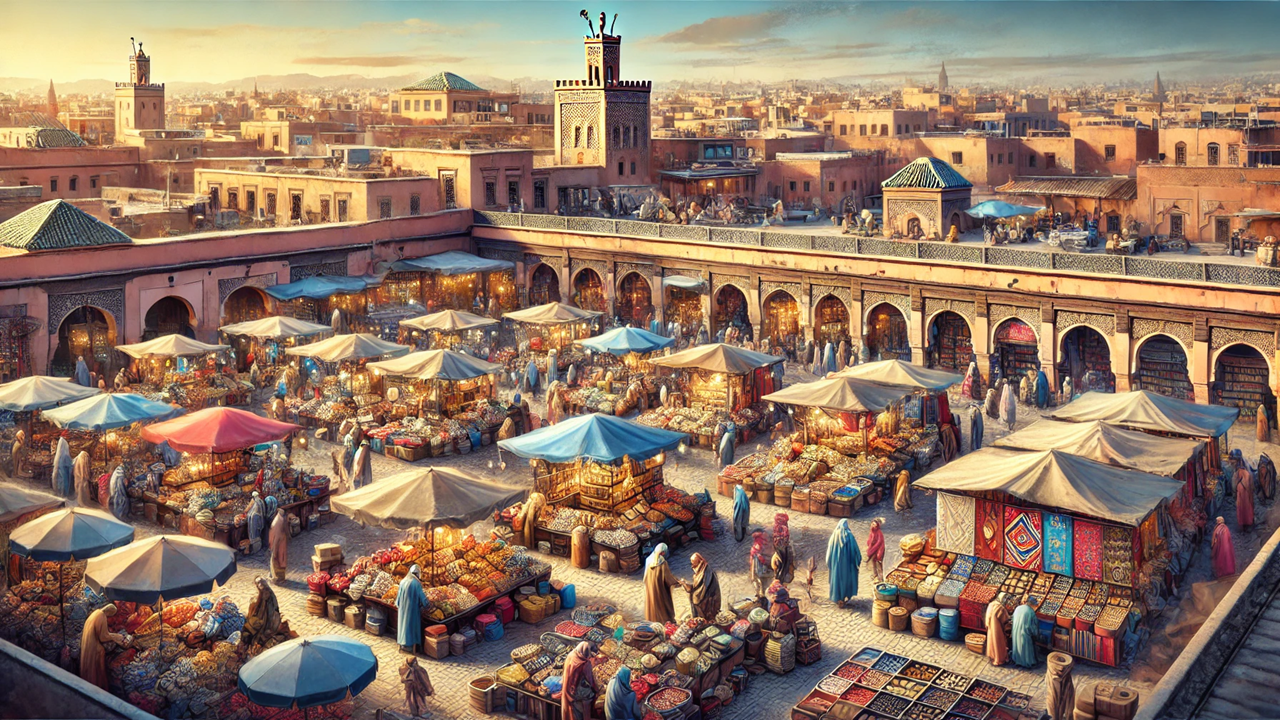Morocco's Economic Resilience: Growth Amid Challenges and the Road Ahead
Morocco’s economy has shown resilience, rebounding from global challenges with significant growth in 2023. However, the path ahead requires addressing internal challenges, particularly in the private sector, to sustain long-term growth. The World Bank's "Morocco Economic Monitor, Summer 2024" report provides valuable insights into the country's current economic landscape and future prospects.

In the face of global economic challenges, Morocco’s economy has demonstrated a remarkable ability to bounce back, supported by strategic government initiatives and a resilient private sector. According to the latest report by the World Bank, titled "Morocco Economic Monitor, Summer 2024: Unlocking the Potential of the Private Sector to Spur Growth and Job Creation," the country’s economy saw a notable recovery in 2023, despite a turbulent international environment.
A Resilient Recovery
Morocco’s economic resilience has been put to the test in recent years. The nation weathered a global economic slowdown, an inflation surge, and the devastating Al Haouz earthquake. Yet, against these odds, Morocco managed to accelerate its economic growth to 3.4% in 2023. This recovery was driven by a strong rebound in key sectors like tourism and export-oriented manufacturing, particularly in automobiles and aeronautics. The resurgence of private consumption also played a crucial role in this positive trajectory.
Tourism, one of Morocco’s economic pillars, has made a significant comeback, contributing to the country’s overall growth. The influx of tourists, coupled with a thriving manufacturing sector, helped boost the economy when it was most needed. This growth was not just a rebound from past hardships but a clear sign of Morocco’s potential to thrive even in challenging times.
External Performance and Macroeconomic Strategy
The World Bank report highlights Morocco's remarkable external performance, especially in attracting Foreign Direct Investment (FDI). The country’s strategic location, stable political environment, and sound infrastructure have made it an increasingly attractive destination for international investors. This surge in FDI is not just about numbers; it represents significant opportunities for Morocco to enhance its economic complexity and move up the value chain.
In tandem with these external achievements, Morocco’s internal economic policies have also played a critical role. The government’s macroeconomic stance, characterized by a substantial increase in public sector size, has been instrumental in sustaining aggregate demand. By carefully balancing public revenues and expenditures, Morocco has managed to reduce its budget deficit, even amidst a global economic downturn.
One of the standout aspects of Morocco’s economic management has been its rapid disinflation process. The cautious monetary policies adopted by Bank Al-Maghrib, Morocco’s central bank, have proven effective in mitigating the inflationary pressures that have plagued many other economies. This approach has not only stabilized the economy but has also minimized the potential disruptions that could have been caused by more aggressive monetary tightening.
Challenges on the Homefront
Despite these successes, the Moroccan economy faces significant challenges. The report sheds light on the difficulties that both firms and households are encountering in the aftermath of recent economic shocks. Business insolvencies are on the rise, reflecting the lingering impact of the pandemic and other economic disruptions. The labor market, particularly in rural areas, remains under pressure, with job losses continuing to be a concern.
The Moroccan government has responded to these challenges with new social aid programs aimed at providing relief to the most vulnerable populations. While these initiatives are a step in the right direction, the underlying issues within the private sector need to be addressed to ensure long-term economic stability and growth.
Looking Ahead: 2024 and Beyond
As Morocco looks towards 2024, the economic outlook is mixed. The World Bank projects a moderate slowdown in growth, with the economy expected to decelerate to 2.9% due to a weak agricultural campaign. However, non-agricultural sectors are likely to remain resilient, driven by domestic demand and industrial growth. From 2025 onwards, assuming normal agricultural conditions, Morocco’s growth is expected to pick up again.
The report emphasizes the need for Morocco to address the structural issues within its private sector. Larger firms, which are expected to be more productive, often underperform compared to their smaller counterparts. The density of High Growth Firms (HGFs) in Morocco remains low, a concerning trend given their potential to drive job creation. Overcoming these challenges is crucial for Morocco to fully unlock the potential of its private sector and sustain its economic growth in the coming years.
- FIRST PUBLISHED IN:
- Devdiscourse
ALSO READ
Public Investment as a Key Driver of Private Sector Growth in Emerging Markets
Govt to Launch National Infrastructure Agency to Boost Private Sector Investment
Adani Group Spurs Economic Growth with Major Projects in Madhya Pradesh
Effective Policing: Key to India's Economic Growth
Bank of Mexico Revises Economic Growth Projections Amid Persistent Inflation










